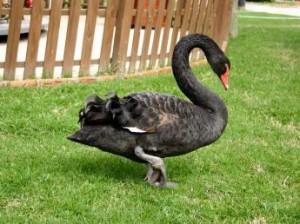So I’ve had two moms in the last month ask me (as a homeschooling mom and a writer), how is it I teach my children to write.
I’ll get back to you on that in 15 years or so. When I actually know how it is they learned.
In the meantime, I’ll share the philosophy and materials I work from.
Now, I am fairly fluent in writing. But I never liked to write as a kid. (I hope that encourages anyone who is in despair over her child’s abhorrence.) My understanding of teaching writing was first influenced by Donald Davis’s book, Writing as a Second Language.
I never finished it, but the title and what I did read set my mind in a direction it had never been before: to see writing as a completely different animal than speaking or reading. Which I believe it is.
This sense of something different was solidified and put into a usable/applicable for when I read the introduction to Susan Bauer’s Writing With Ease. In that book she points out that when we teach writing we are expecting the student to learn, not one but, four separate skills.
- Generating ideas. Content that will be conveyed.
- Translating those ideas into words
- Holding those words in mind while they are transferred to print
- The physical act of writing them down.
When you have a child resistant to “writing,” a good first step is looking for where in this chain the process is breaking down.
The first book (Writing as a Second Language) encourages “rehearsing” stories in one’s “first” language (speech) before ever taking them to the paper. In Classical learning this is referred to as narration. In its simplest (and most accessible) form, narration is simply answering questions in complete sentences.
The words children create in response to questions (for example, about something they just heard read aloud) may not seem particularly original, but certainly at the beginning originality is not the teacher’s goal. You are working specifically on the second part of the process: creating words that make sense.
This is why the “complete sentences” part is important. The child is learning sentence structure by example.
Where did God place the man he created?
In the garden.
Can you say that in a complete sentence? You can use the same words I did.
God placed the man he created in the garden.
In fact, by getting in the habit of using the words he hears to re-frame the answer, the student is practicing #3 along with #2.
With my girls I use the workbooks Bauer developed to accompany the text I read at first.
The workbooks are not essential, but they replace the planning that I would otherwise have to do myself, and so I find them *absolutely* worth the $20-30 they set me back. (Not forgetting that I can use them for each of my kids if I continue in this method. Copyright permission clears each book for an entire (single) family’s use.)
The other resource I’ve found useful is the English worktext put out by the same publisher we buy our math curriculum from– BJU Press. Natasha isn’t using it this year, but did last year, and I was impressed with how systematically it worked through the basics in her 2nd-grade text.
She wrote her first personal essay last year, following the step-by-step instructions as guided by the curriculum. She couldn’t hardly get through a sentence without a giggly-happy squeal of “I’m writing!” Because it’s a big deal to her to be like Mama.
And there’s the motivating bit about enjoying writing, or words, or Story, yourself.
Kids learn what’s “normal” through observation. If they regularly see you writing (or reading, or singing or dancing) and enjoying it, finding value in it, that will increase its value in their eyes.
My children may not see it (writing) as important as I do, but between reading and writing, I have what I want most for my kids at this stage in their learning: they are not afraid of language.
Yes, Natasha learned to read without really trying, but, as we guessed in that blog post, the “different minds working differently” means we weren’t surprised when our other two were (are) different in their learning to read.
The wonderful thing is that the younger two– for whom reading is a harder slog– are enough in love with Story that they are not driven away from all print by their hard road. I’ve known kids (it made me sad) who had no interest in stories because they were too much of a reminder of their struggle.
Elisha and Melody are both so wired for story they’ve got steps #1 & #2 just *nailed.* Even #3 isn’t that far away. So, as a rule, I encourage storytelling, and have them practice their letters, either with tracers or copywork. They get to advance (grow in strength) in all the steps, even if they aren’t doing them all self directed yet.
We have plenty of time. And especially with their prolific storytelling and spontaneous narration, I expect a time will come when they’ll want to record their visions to hang on to.
At least, that’s what happened to me.



